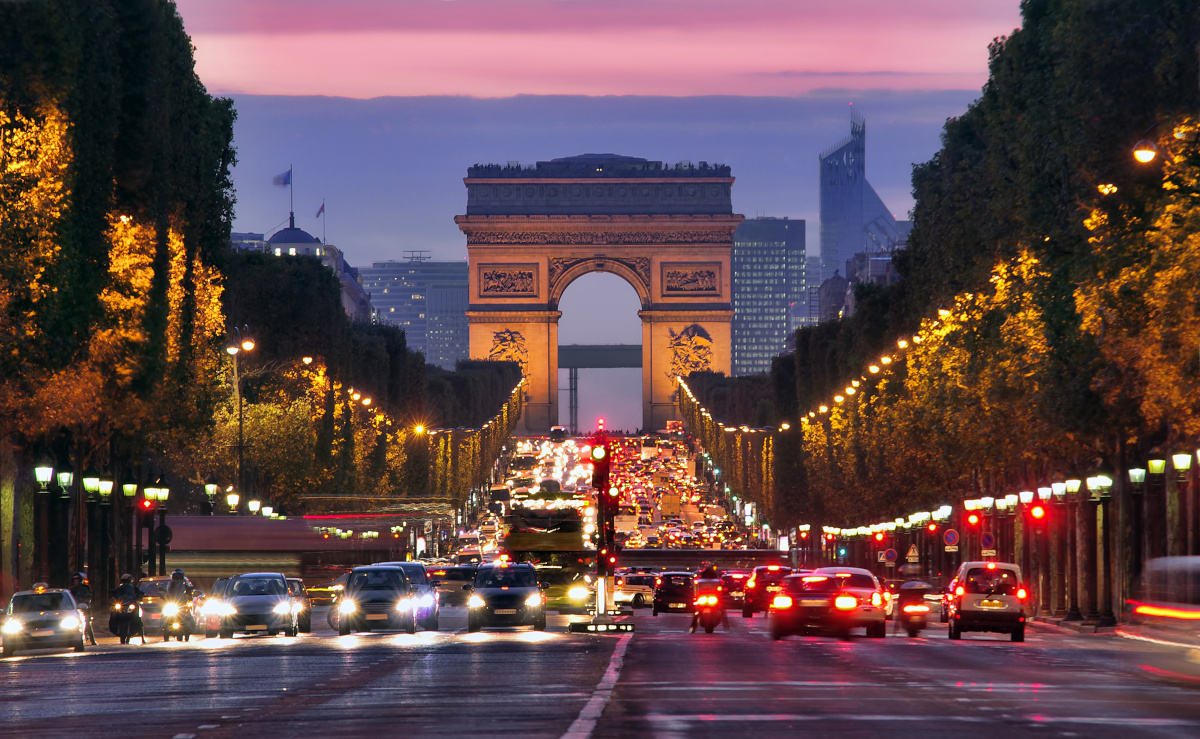
Health & Safety for a Trip to France
Stay Safe and Healthy on Your Trip to France With Redpoint Protection
France is one of the most-visited countries in the world for good reason. From iconic landmarks, like the Louvre and Eiffel Tower, to the unique café and food culture, there are so many things that bring travelers back again and again.
While much emphasis is put on Paris, and justifiably so, there's plenty to explore beyond the capital city. From the wine-producing regions of northern France to the stunning Cote d'Azur — aka the French Riviera — in the south, it's a multidimensional country with a great sense of national pride.
No matter how you plan to spend your trip to France, you should take out travel insurance before you go — even if your idea of adventure is simply a quick trip to Paris. Any trip abroad comes with some risk, and things can go wrong in any destination at any time. Travel insurance gives you peace of mind that any unexpected costs should be covered, as well as your initial trip deposit in case you have to cancel.
Let's take a look at France travel health and safety concerns, as well as the medical information you'll need to be aware of before your trip.

Medical, Health & Safety in France
France is generally a very safe and advanced country, but there are several things you’ll want to keep in mind as you prepare for your trip.
Common Diseases
At the current time, there are no major disease concerns or health risks in France that travelers need to be aware of. Seasonal infections, such as flu and respiratory illnesses, do spread easily in the colder months, but local pharmacies can help provide medications if needed.
To prepare for your trip, consult official sources, like the World Health Organization (WHO), for travel advice, country-specific health news and updates, and further information before your departure.
Vaccinations
The French government doesn’t have any vaccination requirements for entry at this time, but no matter where you’re traveling, you should always make sure you’re up-to-date on routine vaccines, including polio, shingles, chickenpox, diphtheria-tetanus-pertussis (DTP), measles, mumps, rubella (MMR), tetanus, and seasonal flu.
The U.S. Centers for Disease Control and Prevention (CDC) also recommends U.S. travelers are vaccinated for COVID-19 and hepatitis A and B, as well as measles, which is on the rise worldwide.
Local Medical Treatment
France has an excellent healthcare system, with world-class facilities and skilled medical professionals. Travelers who need treatment can access private clinics or public hospitals; however, both will charge you for treatment — private clinics often at higher rates.
As a result, you’ll need travel insurance (as well as a waiver if you have any pre-existing medical conditions) to make sure those emergency medical costs can be covered. Be sure to request itemized bills for reimbursement.
Pharmacies are widely accessible; however, it’s always smart to carry your own travel health kit if you know you may need prescription medications during your trip.
Water & Food
Tap water is typically safe to drink in France, unless noted otherwise.
France is known for its gastronomy and food culture, and food-safety standards are typically very high. As always, though, you should exercise caution if you choose to eat shellfish and seafood, which should always be freshly prepared and cooked thoroughly.
Air Quality
Air quality in French cities is generally good; however, Paris can experience worse conditions during heatwaves or in areas where there’s heavy traffic congestion. If you have a respiratory condition, it’s wise to monitor the air quality index if you’re staying in an urban area.
Crime & Personal Safety
France is generally safe, but petty crime, like pickpocketing, is common in major cities, tourist areas, crowded venues, and public-transportation hubs. Remain aware of your surroundings, and be vigilant with your belongings, especially on public transport, in crowded areas and train stations, and at tourist attractions and sporting events.
Large gatherings, such as protests, are common in France, especially in Paris. Normally these are nonviolent and peaceful demonstrations, but French authorities have been known to use tear gas to disperse crowds, so steer clear of any gatherings on the street — especially if there is significant police activity in the area.
The U.S. Department of State currently has a Level 2 travel advisory in place for visitors to France, urging increased caution due to terrorism and civil unrest, so be sure to monitor local media and follow local advice to remain aware of any potential issues. Before your departure, it’s also wise to register for the Smart Traveler Enrollment Program (STEP) in case of emergencies.
Natural Disasters
Weather and safety conditions in France aren’t too extreme, but the country occasionally experiences natural disasters, such as flooding, particularly in the spring and fall.
Wildfires can occur in the southern regions during summer, which can be exacerbated by extreme heat. Do not exert yourself during heat waves, and do not expect air conditioning to be guaranteed in your accommodation — it’s best to confirm when you book.
Travelers should heed local warnings, monitor local media, and follow the instructions of local authorities during emergencies.
Local Laws
To stay out of trouble and avoid complications while you’re in France, you’ll want to familiarize yourself with the local laws and regulations relevant to travelers.
Always carry identification, as it is required by French authorities. Smoking is banned in most indoor public spaces, and photographing police or military personnel is strictly prohibited.
The French government imposes sanctions for the possession of illegal drugs, including cannabis. Possessing small quantities of controlled substances can incur fines of €150 to €450, and if local authorities catch you using narcotics, it can mean a year in prison and a fine of up to €3,750.
French driving habits can make getting behind the wheel something of an adventure, particularly in Paris, where the rules of the road may seem like something of a mystery to the uninitiated. If you plan to rent a car and drive while in France, familiarize yourself with traffic signals and basic etiquette — and don’t forget to obtain an International Driving Permit before your trip.
FAQs about France Travel Health & Safety

Is travel insurance mandatory for France?
What vaccinations are needed to travel to France?
Although there are currently no pressing health concerns, the CDC does recommend that U.S. travelers visiting France be up-to-date on routine vaccines, including measles, mumps, rubella (MMR), tetanus, COVID-19 and seasonal flu. It also recommends vaccinations for hepatitis A and B, as well as measles, which is on the rise worldwide.
What is required for a U.S. citizen to visit France?
For Americans entering the Schengen Area and staying less than 90 days, no tourist visa or business visa is required. Starting in 2025, however, anyone traveling from a non-EU country may need to obtain an ETIAS (European Travel Information and Authorization System) before entering France and the European Union in general.
The French Ministry of Europe and Foreign Affairs and the Embassy of France both have up-to-date information for visitors, so be sure to consult either or both well ahead of your departure for the latest on entry requirements and more.
Are there any COVID-19 restrictions for travelers to France?
What happens if a tourist gets sick in France?
Of course, without travel insurance you'll have to pay out of pocket for any medical expenses, and healthcare costs can be high for non-residents.
In case of an emergency in France, dial 15 for medical assistance. You can also reach Redpoint's 24/7 assistance helpline at +1-415-481-0610.
Are the hospitals good in France?
Is France safe for female travelers?
It's always wise to let someone know where you're staying as well, and to register for the U.S. State Department's Smart Traveler Enrollment Program (STEP) in case of emergencies.
How do I contact the U.S. Embassy in France?
2 avenue Gabriel, 75008 Paris
Tel: +33-1-43-12-22-22
Get Coverage from Redpoint
Whether you’re touring the French countryside or soaking in the City of Light, Redpoint’s comprehensive, easy-to-understand policies can cover adventures of all kinds. Explore our three international travel insurance plans — Ripcord, Cavalry, and Harbor — and get a quote for your next trip today.

